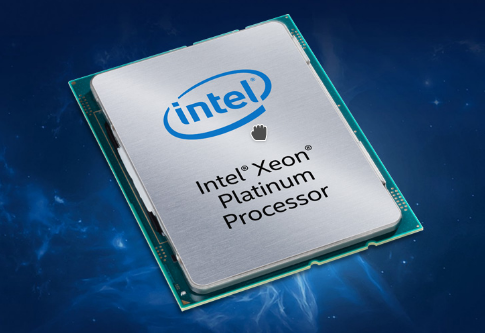 EMERGING TECH
EMERGING TECH
 EMERGING TECH
EMERGING TECH
 EMERGING TECH
EMERGING TECH
Chip maker Intel Corp. says its new Xeon W processors announced today are going to change the game for workstations, because they’re designed specifically to handle the massive processing requirements of artificial intelligence and virtual reality development.
Intel announced its Skylake-based Scalable Xeon platform in May, which includes a line of enterprise-grade processors that range for eight processing cores all the way up to 28 cores. Some of the Xeon chips are made for servers, but the Xeon W line is designed for workstations such as the iMac Pro. According to the company, the Xeon W chips will power the development of a new generation of VR and machine learning applications.
“These new Intel Xeon processors for workstations deliver the features and capabilities elite professionals need to bring their digital creations to life,” said Intel exec Lisa Spelman. “Whether it’s professional-grade virtual or augmented reality, content creation in full 8K resolution, advanced computer aided design and simulation, or innovations we’ve yet to discover, these robust processors empower creative and technical professionals with tools to match their imaginations.”
Xavier Garcia, vice president and general manager of Z Workstations at HP Inc., said the Xeon chips were perfect for “power-hungry” companies that need bleeding edge technology in their workstations. Lenovo Workstations General Manager Rob Herman added that the Xeon chips give users “new flexibility and robust features to manage their most mission critical professional workloads, helping them get the job done efficiently.”
According to Intel, the Xeon W chips can boost performance for media and entertainment workloads by up to 3.3 times, and the chips offer an overall performance bump of 1.38x versus its previous generation of chips.
Intel’s new Xeon W chips are certainly powerful, but they face some stiff competition from Advanced Micro Devices Inc., whose Zen-based EPYC workstation processors offer plenty of power as well. AMD also claims that its workstation processors are perfectly suited for machine learning and other resource-intensive processing tasks. The company says its EPYC 7601 system-on-chip “races past the best Intel Xeon E5 v4 processor CPU” in both integer and floating point performance. AMD also claims that its chips have a “better balance.”
THANK YOU